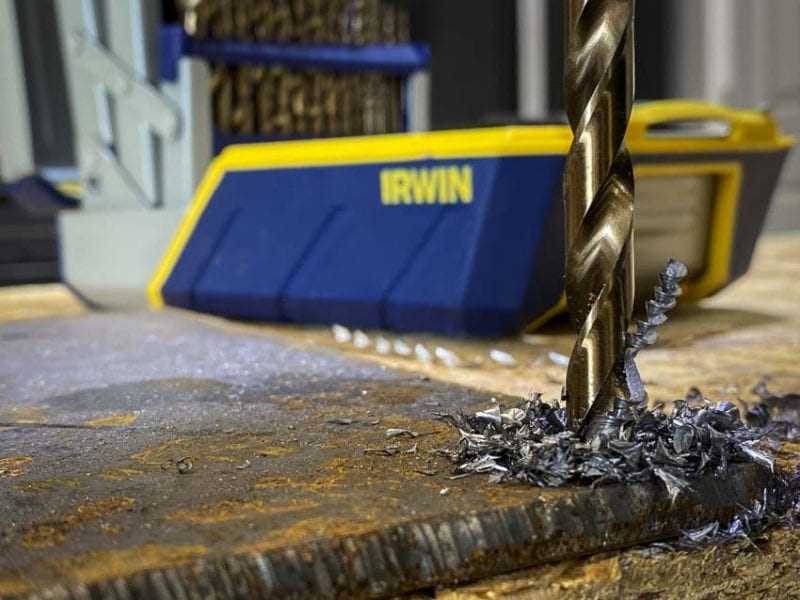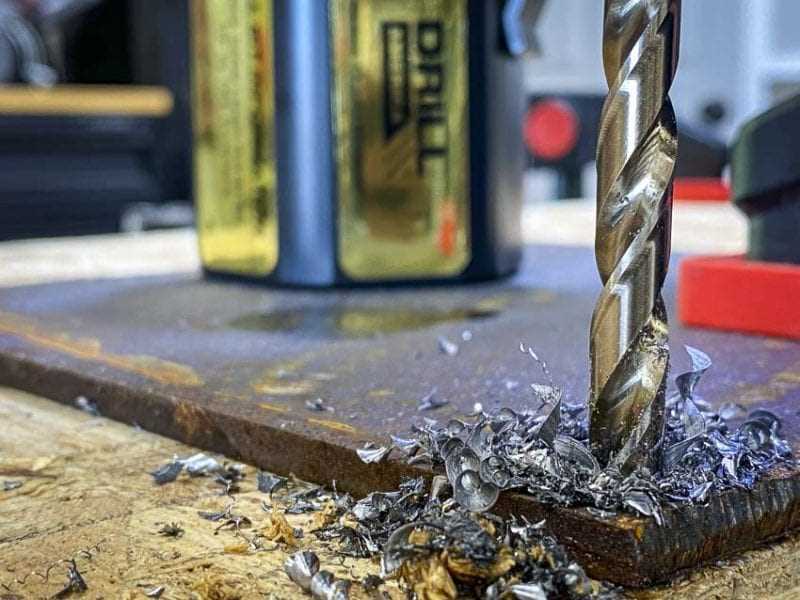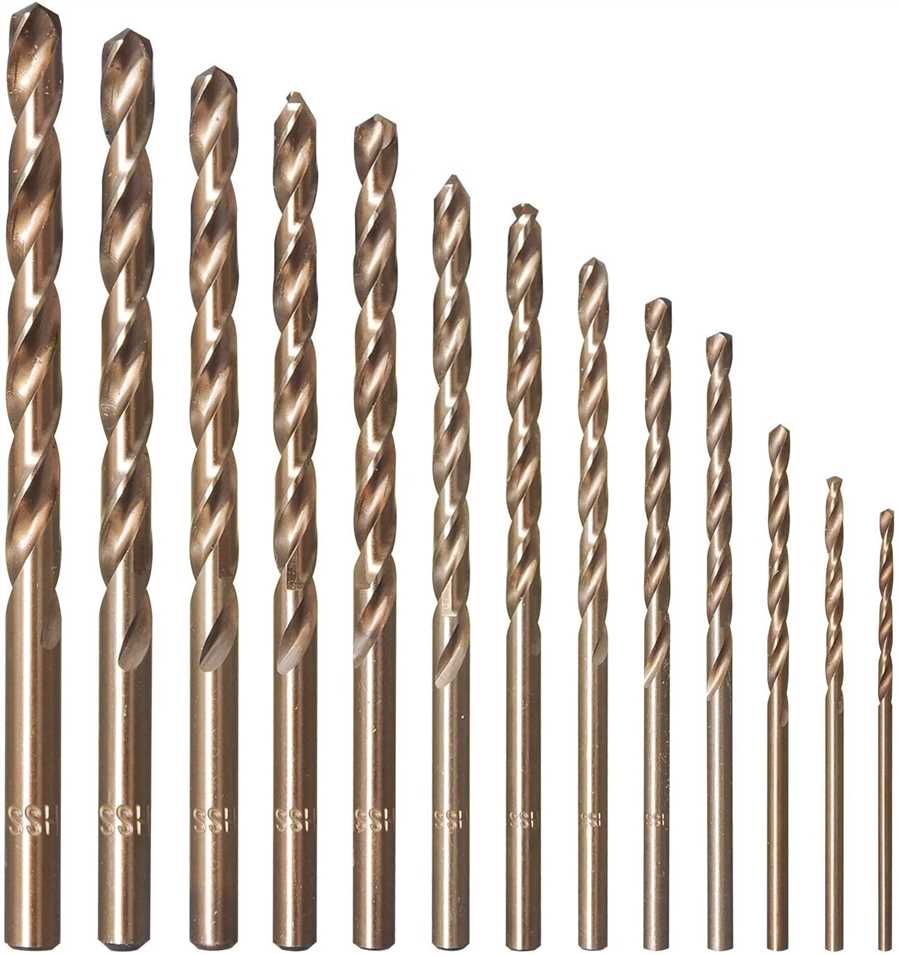Best drill bits for all materials

When it comes to drilling into different materials, having the right drill bit is crucial. Whether you are working with wood, metal, masonry, or plastic, using the appropriate drill bit can make all the difference in the success of your project. With so many options available on the market, it can be overwhelming to choose the best drill bits for all materials.
One important factor to consider when selecting drill bits is the material they are made of. For drilling into wood, high-speed steel (HSS) drill bits are a popular choice due to their durability and ability to withstand high temperatures. For metal, cobalt drill bits are preferred as they are harder and more heat-resistant. Masonry drill bits, on the other hand, are designed with a carbide tip to handle tough materials like concrete and brick.
In addition to the material, the design of the drill bit also plays a role in its performance. Twist drill bits are commonly used for general-purpose drilling where accuracy is important, while spade or paddle bits are ideal for drilling larger holes in wood. Diamond drill bits, on the other hand, are specifically designed for drilling into glass, tiles, and stone.
Choosing the best drill bits for all materials may require a combination of different types to cover all your drilling needs. It is important to consider factors such as the material of the drill bits, their design, and the specific application you will be using them for. By selecting the right drill bits, you can ensure precision and efficiency in your drilling projects, regardless of the material you are working with.
Drill Bits for Metal


When it comes to drilling through metal, it is important to choose the right drill bit to achieve clean and accurate results. Ordinary drill bits may struggle to penetrate metal surfaces effectively, leading to inefficient drilling and potential damage to the material. Fortunately, there are specialized drill bits designed specifically for metal, offering enhanced performance and durability.
One popular type of drill bit for metal is the titanium-coated bit. These bits are made from a high-speed steel material covered with a titanium coating, which improves their hardness and heat resistance. The titanium coating also helps reduce friction while drilling, allowing for faster and smoother operation. These bits are ideal for drilling into various types of metal, including steel, iron, and aluminum.
Common Features of Drill Bits for Metal:
- Split Point Design: Many drill bits for metal feature a split point design, which enhances accuracy and reduces the need for a pilot hole. This design allows for easier penetration into metal surfaces without wandering or slipping.
- High-Speed Steel (HSS) Construction: HSS drill bits are commonly used for drilling through metal due to their exceptional hardness and heat resistance. These bits can withstand high drilling speeds and retain their sharpness for extended periods.
- Cobalt Alloy Construction: Some drill bits for metal are made with cobalt alloy, which offers superior hardness and durability compared to standard HSS bits. Cobalt alloy bits can handle high drilling temperatures and are ideal for drilling into hard metals like stainless steel.
When selecting drill bits for metal, it is essential to consider the thickness and type of metal you will be drilling into. Choosing the right drill bit with the appropriate features and construction materials will ensure efficient and successful drilling results.
Drill Bits for Wood
When it comes to drilling holes in wood, it is important to choose the right drill bit to ensure clean and precise results. There are several factors to consider when selecting drill bits for wood, including the type of wood, the size of the hole needed, and the type of drill being used.
Twist Drill Bits: Twist drill bits are the most common type of drill bit used for wood. These bits have a pointed tip and spiral grooves that help remove wood chips as the hole is drilled. They are available in various sizes to accommodate different hole diameters.

- Brad-Point Drill Bits: Brad-point drill bits are designed specifically for drilling clean and accurate holes in wood. They have a sharp point at the tip that helps to prevent the bit from wandering or slipping as it starts to drill. Brad-point drill bits often have fluted edges that help to clear away chips as the hole is drilled.
- Forstner Drill Bits: Forstner drill bits are used for drilling flat-bottomed holes in wood. They have a small center point and a flat cutting edge that allows for precise drilling. Forstner bits are ideal for drilling holes for dowels or other types of joinery.
- Spade Drill Bits: Spade drill bits, also known as paddle bits, are used for drilling larger diameter holes in wood. They have a flat, paddle-shaped tip and two cutting edges that help to remove wood chips more efficiently. Spade drill bits are commonly used for drilling holes for electrical wiring or plumbing.
- Auger Drill Bits: Auger drill bits are designed for drilling deep holes in wood. They have a spiral shape and a screw-like tip that helps to pull the bit into the wood as it is being drilled. Auger bits are commonly used for drilling holes for large bolts or dowels.
Overall, choosing the right drill bit for wood is essential for achieving accurate and clean holes. Consider the type of wood, the size of the hole, and the specific drilling needs to select the appropriate drill bit for the job.
Drill Bits for Concrete
When it comes to drilling into concrete, it is important to have the right drill bits. Concrete is a tough material, so the drill bits need to be strong and durable to get through it effectively. There are different types of drill bits that are specifically designed for use with concrete, each with their own unique features and advantages.
1. Carbide Tipped Drill Bits

Carbide tipped drill bits are one of the best options for drilling into concrete. They are made with a strong and durable carbide tip that can easily penetrate through the dense material. These drill bits have high heat resistance, which reduces the risk of overheating and extends their lifespan. Carbide tipped drill bits are available in different sizes and shapes, allowing for versatility in drilling applications.
2. Masonry Drill Bits

Masonry drill bits are another popular choice for drilling into concrete. These bits are designed with a specialized tip that creates a clean and precise hole in concrete. They are made with a hard and tough material, such as high-speed steel or cobalt, to withstand the demands of drilling into concrete. Masonry drill bits are available in various sizes and lengths, making them suitable for different drilling tasks.
3. Diamond Core Drill Bits
Diamond core drill bits are specifically designed for drilling larger holes in concrete. These bits feature a diamond-impregnated tip that is highly effective in cutting through tough concrete surfaces. Diamond core drill bits require a specific type of drilling machine, but they offer exceptional precision and durability. They are commonly used in applications such as plumbing, electrical work, and construction.
When choosing drill bits for concrete, it is important to consider the size and type of hole you need, as well as the specific requirements of your drilling project. Whether you opt for carbide tipped drill bits, masonry drill bits, or diamond core drill bits, selecting the right tool will ensure efficient and high-quality results.
Drill bits for ceramic and glass
When it comes to drilling through ceramic and glass surfaces, using the right drill bits is essential to prevent cracking and breakage. These materials are fragile and require specialized tools that can effectively and safely create holes without causing damage. Here are some drill bits that are specifically designed to work with ceramic and glass:
- Carbide-tipped drill bits: These drill bits are made with a tungsten carbide tip, which is extremely hard and can easily penetrate through ceramic and glass. They are designed to provide clean and precise holes without the risk of cracking or chipping the material.
- Diamond drill bits: Diamond drill bits are the most durable and efficient option for drilling through ceramic and glass surfaces. They are tipped with diamond particles, which have the ability to cut through these hard materials without causing any damage. Diamond drill bits are also versatile and can be used for various projects.
- Tile-specific drill bits: These drill bits are specifically designed for drilling through tiles and other ceramic surfaces. They typically feature a spear-pointed tip that helps to reduce the risk of slipping, and some models have a diamond coating for added durability.
When using drill bits for ceramic and glass, it’s important to take certain precautions to avoid damage. Always use a low drilling speed and apply gentle, steady pressure. It’s also recommended to use a lubricant, such as water or oil, to keep the drill bit cool and prevent excessive heat buildup. Additionally, consider using a backing material, such as a piece of scrap wood or plastic, to provide support and prevent the material from cracking.
5 Best drill bits for all materials
Features
| Part Number | KTFG08 |
| Model | KTFG08 |
Question-answer:,
What type of drill bits are best for ceramic and glass?
Diamond-tipped drill bits are the best choice for drilling through ceramic and glass materials.
Can regular drill bits be used on ceramic and glass?
No, regular drill bits are not designed to drill through ceramic and glass materials effectively. They may cause the material to crack or break.
How can I prevent the drill from slipping while drilling into ceramic or glass?
You can use a small piece of tape or a center punch to create a small indentation on the surface of the ceramic or glass material. This will help the drill bit to grip and prevent it from slipping.
Do I need to use water while drilling into ceramic or glass?
Yes, it is recommended to use water or a coolant when drilling into ceramic or glass materials. This helps to keep the drill bit and the material cool, reducing the risk of cracking or breaking.
How should I clean the drill bit after drilling into ceramic or glass?
You can clean the drill bit with a soft brush or cloth to remove any debris or residue. Avoid using harsh chemicals or abrasive materials, as these may damage the drill bit.
Conclusion
In conclusion, choosing the right drill bits for ceramic and glass can greatly enhance the success and efficiency of projects involving these materials. It is important to consider factors such as the type of material being worked on, the desired hole diameter, and the speed and pressure at which the drill is operated. Using diamond-coated or carbide-tipped drill bits can provide the hardness and durability necessary to effectively drill into ceramic and glass. Additionally, using lubrication and proper cooling techniques can help minimize the risk of overheating and cracking. By selecting the appropriate drill bits and employing the correct techniques, professionals and DIY enthusiasts can achieve precise and clean results when working with ceramic and glass.






